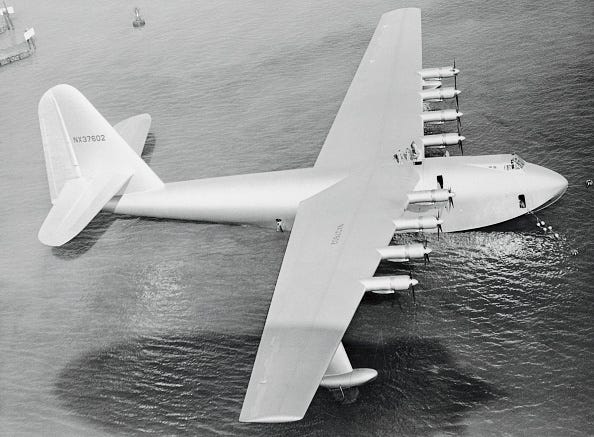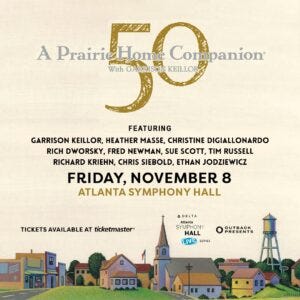The Writer's Almanac from Saturday, November 2, 2013
"Weather" by Ron Koertge, from Fever. © Red Hen Press, 2006.
ORIGINAL TEXT AND AUDIO - 2013
It was on this day in 1948 that Harry S. Truman managed one of the great election upsets in American history, beating the Republican governor of New York, Thomas E. Dewey, for the presidency. Truman had been doing badly in the polls in part because he'd come into office after Franklin Roosevelt's sudden death on April 12, 1945, and he'd never really lived up to Roosevelt's reputation. Truman wasn't well known, and people painted him as a country bumpkin from Missouri, with no college degree. Republicans took control of the Congress in the mid-term elections in 1946, and factions of the Democratic Party were splitting off into the Progressive Party and the Dixiecrats. Two months before the election, the pollster Elmo Roper announced that he was going to stop surveying voters, because Truman was so far behind.
But Truman didn't give up. He set out on his Whistle Stop Tour, with a private railroad car outfitted with a sound system so that he could pull into small towns and give speeches directly from the train. That fall of 1948, he traveled 21,928 miles, just short of the distance around the world, and he delivered more than 300 speeches, including the first speech ever delivered by an American president to a black audience in Harlem.
On Election Day, he went to bed early, after a ham sandwich and a glass of milk. When he woke up around midnight and turned on the radio, they were reporting that he was ahead in the popular vote by more than 1 million, but the announcer said that he was still undoubtedly beaten. It turned out that he had won 303 electoral votes to Dewey's 189. Not a single news organization in the country had predicted the election correctly. Two days after the election, Truman was making an appearance in St. Louis and somebody handed him a copy of the Chicago Tribune with the headline, "DEWEY DEFEATS TRUMAN." He held the paper over his head, and that became the source of the famous photograph. An unsigned editorial in the conservative New York Sun said of Truman's upset victory, "You just have to take off your hat to a beaten man who refuses to stay licked."
It's the birthday of the frontiersman Daniel Boone, born on this day in 1734 near Reading, Pennsylvania. When he was young, his family moved to North Carolina, where Daniel loved to hunt in the forest. He educated himself by taking books with him on his hunting trips. He went on long hunting and exploring expeditions, and he crossed the Cumberland Gap into Kentucky.
Even during his lifetime, Boone was a figure of legend. He was captured by Indians, and he lived with them as an adopted son before he escaped.
Daniel Boone was a man of few words, so his biographers took free rein and invented long, eloquent speeches for him. They also embellished the facts — these biographies have Boone wrestling with bears or swinging away from Indians on vines. He became so famous as a pioneer hero that the poet Lord Byron included him as a character in his epic poem Don Juan, in 1823.
Daniel Boone, who said, "I have never been lost, but I will admit to being confused for several weeks."
Today is the anniversary of the maiden — and only — flight of the Spruce Goose, made on this date in 1947. It's technically known as the H-4 Hercules, and it was made of birch, not spruce. Dreamed up by shipping magnate Henry Kaiser, and designed by Howard Hughes, it remains the largest airplane ever built, by far: It's five stories tall, it boasts a wingspan of 320 feet, its cargo area is large enough to hold two railroad boxcars, and it has eight engines with 17-foot propellers. It was made of wood because metal was at a premium during the war, and Kaiser wanted to see if aircraft could be built using other materials. He and Hughes landed a government contract to build three prototypes. Hughes micromanaged every aspect of the design and production process, and the project fell way behind schedule. Kaiser eventually walked away from the whole thing. The plane hadn't even been assembled yet by the time the war ended, and the government began to feel as if it had been swindled. Finally, Hughes completed the plane and, as was his practice, took it out for its maiden flight himself. He reached an altitude of about 70 feet, went over a mile in under a minute, and never flew it again. Some people thought it was because the plane was unsafe, but most likely there was no reason to fly it anymore. He'd proven he could do it, and besides, the war was over, and there was no more demand for behemoth seaplanes.
It's the birthday of cheerleading, which made its debut at the University of Minnesota on this date in 1898. Pep clubs had been around for a couple of decades, especially at Princeton, where their all-male pep club led the crowd in unified chanting to motivate the football team. In 1884, Princeton alum Thomas Peebles moved to Minneapolis, and brought the pep club concept along to the University of Minnesota's football games. Two of the university's rugby players, John Adams and Win Sargent, came up with a "team yell" that same year to cheer on the rugby team: Ski-U-Mah, which neatly rhymes with "Rah, rah, rah!" But all of these chants and cheers were led from the stands.
In the fall of 1898, the U of M's football team had suffered three consecutive losses, and fans were desperate for a way to raise team spirit for the season's final game against Northwestern. The pep club brainstormed plans to further involve the spectators, and nominated a group of "yell leaders" to lead the crowd in the now-traditional chant, "Rah, Rah, Rah! Ski-U-Mah! Hoo-Rah! Hoo-Rah! Varsity! Varsity! Minn-e-so-ta!" One of the yell leaders, Johnny Campbell, took the radical step of running out to the playing field with a megaphone. He faced the crowd, whipped them to a frenzy, and got much of the credit for Minnesota's victory.
Cheerleading was a male-only sport until 1923, when the first female cheerleaders took the field. This phenomenon didn't really take off until the 1940s, when the male student body was depleted by World War II. The '20s also saw the advent of acrobatics, human pyramids, and dance moves to accompany the fight songs and chants.
Be well, do good work, and keep in touch.®
November 8, 2024
7:30 p.m.
Atlanta Symphony Hall, Atlanta, GA
A Prairie Home Companion’s 50th Anniversary Tour
with Garrison Keillor with Guests including HEATHER MASSE, CHRISTINE DIGIALLONARDO, RICHARD DWORSKY and the band (Richard Kriehn, Chris Siebold, Ethan Jodziewicz), SUE SCOTT, TIM RUSSELL & FRED NEWMAN.






You don't mention one famous reason the Truman-Dewey poll results were wrong. Much polling was done by phone, and in those days many urban blue-collar and poor folks did not have phones. So the pollsters missed a big chunk of votes that were going to Truman.